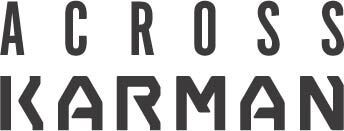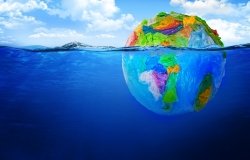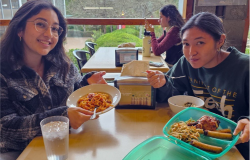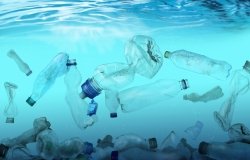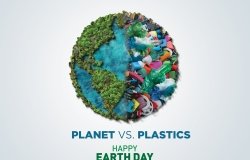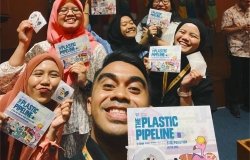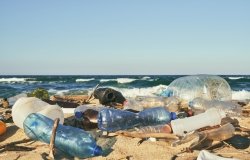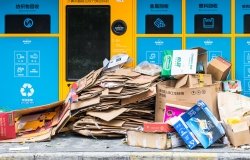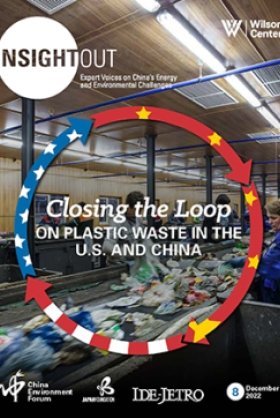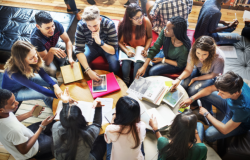Innovative Technologies and Citizen Science to Combat Plastic Waste in the Mekong and Beyond
Overview
Millions of tons of plastic flows into the ocean through rivers each year, and astonishingly almost 95% of that plastic discharge is coming from only 10 rivers, 8 of which are in Asia. Among those 8 are the Yangtze, Mekong, and the Ganges rivers—the lifeblood for hundreds of millions of people in China, Southeast Asia, and India. Gaps in scientific knowledge on where and how plastic litter is leaking into these and other rivers hinders action to tackle the problem.
At this Wilson Center webinar, panelists working in the UNEP’s CounterMEASURE project will talk about how their work in the Mekong River Basin deploying citizen science and frontier technologies like GIS, machine learning and drones, can help identify sources and pathways of plastic pollution in river systems in Asia. Their work, done in partnership with universities, NGOs, businesses, and other international organizations, is generating data to make the most comprehensive map of plastic waste to inform policy decisions and actions to reduce plastic waste in rivers.
Kakuko Nagatani-Yoshida (UNEP) will kick off this panel with a brief introduction to the UNEP CounterMEASURE Project’s innovative work to track hotspots of plastic waste in the Mekong, Ganges, and most recently, in the Mississippi River. Dr. Panate Manomaivibool (Mae Fah Luang University) will describe his university’s initiative to partner with citizen scientists to audit and map plastic waste in Thailand. Dr. Emilie Strady (IRD) will present the microplastic monitoring network developed in Vietnam for aquatic environments as part of the COMPOSE project and a manga-style animation clip dedicated to youth to raise their awareness on plastic pollution. work in Vietnam educating students and elevating sustainable development knowledge. Mr. Fujio Kojima (Pirika Association, Japan) will introduce his company’s innovative Albatross, an underwater machine analyzing the flow of microplastics in the Mekong River. Besides talking about her April mini-expedition to engage citizens in auditing plastic debris for the CounterMEASURE Mississippi River Plastic Pollution Initiative, Dr. Jenna Jambeck (University of Georgia) will speak about the critical need for data to understand the leakage problem.
Please direct audience questions to @WilsonCEF on Twitter or to Solange.Reppas@wilsoncenter.org.
This meeting is part of the Turning the Tide on Plastic in Asia project, co-led by the China Environment Forum and Institute of Developing Economies. Made possible with support from the Japan Foundation’s Center for Global Partnership.
Speakers

Kakuko Nagatani-Yoshida
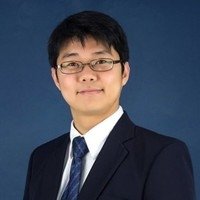
Panate Manomaivibool

Emilie Strady

Fujio Kojima
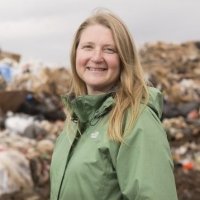
Jenna Jambeck
Hosted By

China Environment Forum
Since 1997, the China Environment Forum's mission has been to forge US-China cooperation on energy, environment, and sustainable development challenges. We play a unique nonpartisan role in creating multi-stakeholder dialogues around these issues. Read more

Indo-Pacific Program
The Indo-Pacific Program promotes policy debate and intellectual discussions on US interests in the Asia-Pacific as well as political, economic, security, and social issues relating to the world’s most populous and economically dynamic region. Read more

Science and Technology Innovation Program
The Science and Technology Innovation Program (STIP) serves as the bridge between technologists, policymakers, industry, and global stakeholders. Read more
Thank you for your interest in this event. Please send any feedback or questions to our Events staff.
